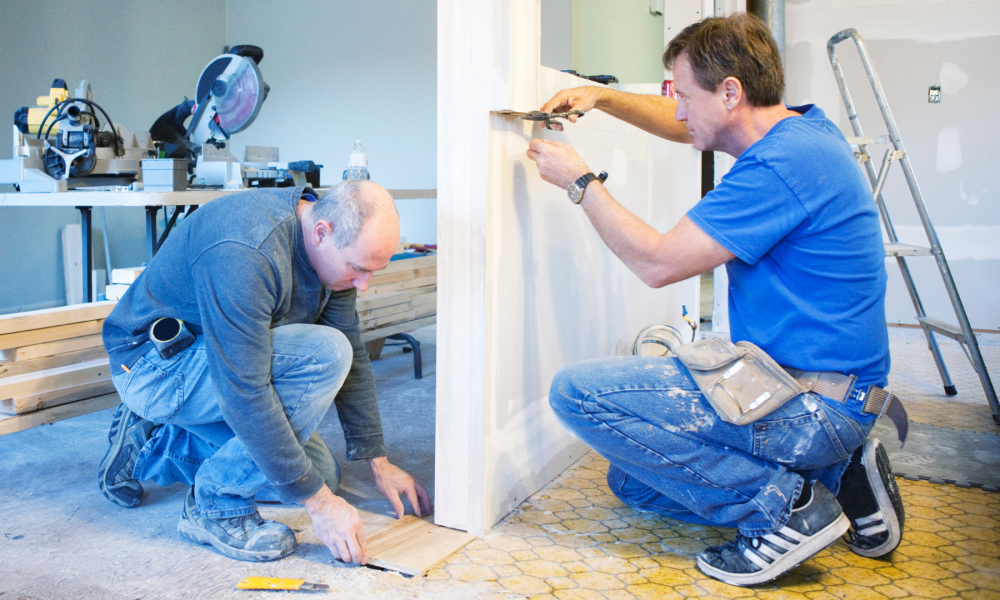If you are planning any new remodeling work on your home, as a homeowner you have two main concerns in terms of your insurance and liability.
First, before a contractor starts work on your property, you have to make sure that you are appropriately insured and that the firm has both workers’ compensation and construction liability insurance.
The second part concerns your property coverage, since most home renovations will add value to the home and add to the cost of rebuilding, should you suffer damage to your home.
If you don’t bolster your coverage after a renovation, you may find yourself underinsured should you have to file a large claim. It may also void your Guaranteed Replacement Cost coverage.
While it’s always exciting at the outset of a new home upgrade or renovation, here are some tips to keep in mind before the first hammer falls.
Verify your contractor’s insurance
When hiring a general contractor, find out if the firm has workers’ compensation and ask for Evidence of Insurance.
Workers’ comp pays for medical and rehabilitation expenses and covers lost wages if the workers sustain injuries on the job. Injured workers may sue you if the contractor does not have proper insurance.
In most home improvement projects, the contractor subcontracts the builders, electricians and plumbers.
The workers hired may not be full-time employees of the contractor and therefore not covered under the contractor’s workers’ compensation policy.
You should obtain Evidence of Insurance for Workers Compensation and General Liability from the contractor and the subcontractors. If the coverage is insufficient, you may need to fill in the gaps by extending the limits of the liability portion of your homeowner’s policy.
Even if your current policy covers any injuries related to the renovation, we often recommend that homeowners carry umbrella liability coverage, which would cover a claim beyond normal limits.
Renovations mean higher value
In addition to liability issues, it is important that you increase your homeowner’s coverage based on the added value to your home.
Kitchen and bathroom renovations are the most common types of remodeling jobs, and they tend to be quite expensive. At the same time, they substantially increase the value of a home.
You should use caution not to over-insure. Don’t increase your insurance based on the cost of the remodel. You should determine how much it would actually cost to rebuild your home with the added improvements.
This replacement cost is the amount that needs to be insured. The cost to remodel also includes tearing out old materials. Therefore, in some cases, the cost difference to rebuild the home may be less than the actual renovation cost itself.
Don’t make the mistake of waiting until an addition or extra room is completed to increase the insurance coverage on the structure of your home. If the new addition is destroyed or damaged before insurance coverage has been increased, you may be responsible for the cost of repairing or rebuilding the addition.
The most important thing to consider is to contact us to increase your limits before, not after, a renovation project. This will ensure that you are covered should any fire or damage occur during a renovation.



